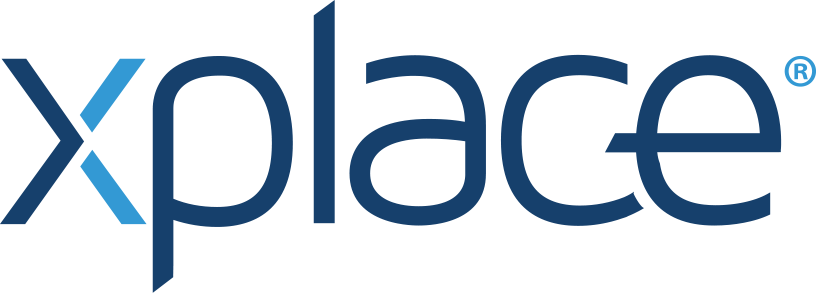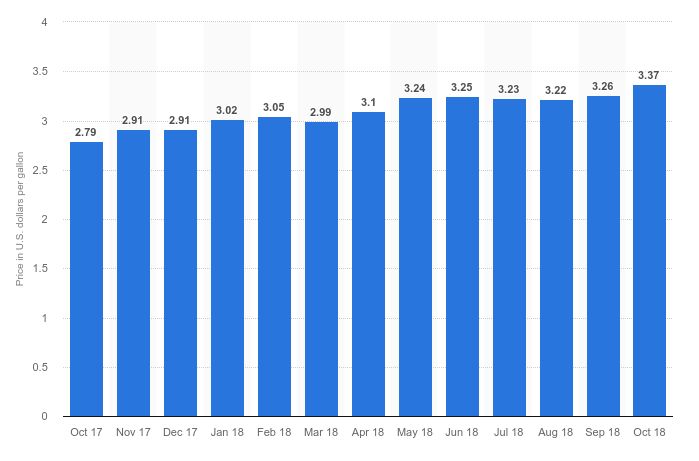We’ll discuss how the use of ERP software for logistics can help you and describe the main advantages of custom-made solutions.
Enterprise resource planning software or ERP is a management solution that combines different types of tools intended to increase the overall performance of a logistics organization. This kind of software is irreplaceable when it comes to working with business information, keeping up customer satisfaction at a high level, and ensuring optimal business processes efficiency.
Logistics is a business that has a lot of moving parts which makes it barely possible to handle all the data management manually. The use of different software tools won’t work well due to the lack of integration. The only solution that can guarantee the facilitated information flow within a logistics organization is ERP software.
Nowadays, logistics companies can choose one of two main ways of leveraging modern technologies that simplify the management of business processes: off-the-shelf software and custom-made solutions. The choice is not so obvious and may cause frustration for those who haven’t enough experience. Today, we’ll discuss how the use of ERP software for logistics can help you and describe the main advantages of custom-made solutions.
Why Logistics is So Expensive and Complex
The fuel is probably the first thing to worry when we talk about the cost management in logistics. Oil prices are at the center of transportation challenges for logistics companies nowadays. Freight movement price is mainly dependent on fossil fuels. According to the Statista website, monthly prices of diesel in the US are growing continuously which makes this part of the logistic business a pretty severe issue.
Inventory management is another significant cost in logistics. It’s barely possible for an organization to have a service center within driving distance of every end user. It’s also infeasible to maintain a central stocking location covering the needs of all clients all over the world. Therefore, efficient management in logistics implies precise determining of how much inventory you need on hand including the probability of unexpected surge of orders. Also, you should keep in mind your average time to a client to be able to keep customer satisfaction at a high level. Maintaining stock records of goods and recording of damaged goods introduces additional complexity and related costs in logistics.
Transaction costs management in logistics include tasks related to the placing and accepting an order. You have to deal with vast amounts of data while issuing and managing invoices, organizing delivering routes, responding to customer queries, following up with clients for payments, and checking the current progress of all these activities. To estimate these costs and define the possible way of reducing them, any logistics company have to monitor the workflow starting with the arrival of an order through the delivery chain and ending with the invoicing process. Since transaction costs come from overly complicated procedures, dealing with all this info is barely possible without a properly designed ERP software.
Besides the described issues, there are also some hidden expenses that are not so obvious and therefore hard to define. The list includes travel and training, currency volatility, additional internal administrative costs, and others.
To deal with all these challenges and manage your employees efficiently, each logistic organization needs a reliable software solution. Custom-made ERP systems enable company management to get access to a single view of all current processes. According to the management needs, different kinds of reports can be generated. Customized reports templates and non-redundant real-time data enables to make strategic decisions on the go.
How ERP Software Can Help Your Logistics Company
ERP systems for logistics allow eliminating redundant data and provide all required info in a real-time mode. Working in a rapidly changing world, it’s not enough to get access to data. It’s also important how fast you can make data-driven decisions. Being able to improve your business processes as soon as the changes occurred, you can avoid costly errors in production. Otherwise, you’ll have to deal with mistakes after they have been made which includes a lot of rework and decreased customer satisfaction. Furthermore, project tracking tools help to define the costs of each operation, increase the overall management efficiency, optimize the workflow, and avoid underperformance.
With a tailor-made ERP software for logistics, you can get fast access to an enterprise-wide view of the required info. Many logistics companies use a complex “infrastructure” of software tools each designed for the needs of a particular department or management team. Such an approach ends up with limited integration and low collaboration ability. Without having access to data which is centralized throughout the logistics organization, you won’t be able to track inventory and receive real-time information about your business’s supply chain. ERP systems designed in accordance with the features of your organization consolidate all of these software tools into a single system and provide a single view of all business processes.
Each department of your logistics organization has its own approach to the tasks management process. New members of an organization inherit systems and documents that they will change over time. Such state of things significantly complicates the interaction between the different teams. ERP systems for logistics allow standardizing your procedures and documents which helps to create facilitated information flow within a company. It enables to reduce the time required for looking the right contractor or supplier details. Instead of that, all your employees can focus on getting the job done fast.
ERP systems for logistics allow you to generate easy-to-read visual reports. Built-in templates help to create reports according to the audience for which they are intended. For example, you can create monthly general performance overviews to be demonstrated at your management meetings. ERP systems allow both minimizing the time required for generating reports and the time that you need to understand the represented data. Such at-a-glance real-time reporting allows making data-based strategic decisions and achieve a better understanding of your financial forecasts.
The Main Benefits of Custom-made ERP Software
At the very first stages of dealing with a custom software developer, you’ll cooperate with business analysts that will do their best to provide a software system to your business issues. One of the distinctive features of the custom-made software for logistics is that its functionality corresponds with each small user requirement. Client-oriented approach implies customer involvement in each stage of the software development process which helps to guarantee the best outcome.
Scalable architecture of custom-made ERP software provides various benefits. First of all, the logistics software that you use can grow with the growth of your business. If you entered the new markets and increased the number of employees, ERP software that you use can adapt to changes in management with minimal effort. Another distinctive feature of custom-made logistics systems is their modular architecture. Software developers can add only those modules that you need right now and implement additional functionality as required. Such an approach allows paying just for the functionality that you need and eliminate excess costs.
If you’re already using a software solution for business processes management in your logistics organization, and it completely satisfies you and your employees, there’s no need to stop using it. Many custom software development companies provide inexpensive integration with external systems. Therefore, instead of abandoning the usual order of things and spend time and money on learning to work with the new system, the logistics software that you use can become an integral part of a brand new ERP solution.
Last but not least, the cost. Learn more what factors have the most significant impact on the cost of an ERP system. An efficient and full-featured ERP system for logistics should include the following modules:
- Delivery management
- Delivery planning
- Orders monitoring and management
- Issuance of documents
- Clients database management
- ERP integration to communication channels
Let’s consider the cost of some of the most popular off-the-shelf custom solutions for logistics processes management that are available on the market. For Sage 300 ERP you’ll pay about $3,065 per user per year for the Pro version. Another significant player in the market is the SAP company. An ERP solution from SAP will cost you approximately $200 per user/month. A custom-made ERP system for logistics with all these modules included, in its turn, will cost you between $45K to $250K. But the best part about this option is that you get a full-featured ERP system for logistics with all included modules in your full possession once and for all. Therefore, in the long run, the custom-made software can be considered as a more profitable investment.
Why Adopting a Custom ERP Solution for Your Inventory Management
Inventory management is the part of logistics that should be considered separately. The process is entirely individual for each business which requires implementing features individually for a particular company. From this point of view, custom software development with its client-centric approach can guarantee a better outcome.
The constant growth of a logistics organization brings both new opportunities and additional challenges for any successful business. In such cases, custom software development is the approach that can guarantee painless adapting to the volatile business environment and growth of your company.
Conclusion
Constantly changing business environment creates the need for flexible management solutions. Logistics includes dozens of continually changing indicators which monitoring determines the success of your decisions. Therefore, the scalability of used logistics software solution can be crucial. Custom-made ERP solutions initially designed in accordance with the business needs of a particular company and implement personalized and custom features for efficient business processes automation. Despite some seeming disadvantages such as long development time in comparison with the time required for adopting an off-the-shelf solution, custom-made software for logistics is profitable in the long run. Also, custom-made ERP systems are easily integrated with the existing software that a company uses, can be upgraded painlessly, and have high scalability potential.
Originally published on theinnovationenterprise.com








 פרסום פרויקט
פרסום פרויקט


 התחבר עם פייסבוק
התחבר עם פייסבוק
 התחבר עם LinkedIn
התחבר עם LinkedIn

